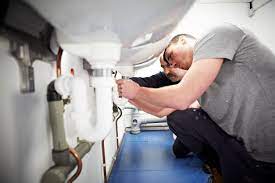Water heaters are indispensable appliances in modern homes, providing comfort and convenience by supplying hot water for various purposes. However, like any other mechanical device, they are susceptible to malfunctions and breakdowns. When your water heater encounters issues, it can disrupt your daily routine. Knowing how to troubleshoot and address common problems can save you both time and money. Here’s a comprehensive guide to assist you in diagnosing and repairing your water heater.
Understanding the Basics
Before diving into repairs, it’s crucial to familiarize yourself with the different types of water heaters. The two main categories are tankless (on-demand) and tank-style heaters. Each operates differently and may encounter distinct problems.
Common Issues and Troubleshooting
No Hot Water
If your water heater fails to produce hot water, several factors could be at play:
- Electricity/Gas Supply: Check if the unit is receiving power or gas. Tripped breakers or blown fuses might be the cause in electric models.
- Thermostat Issues: A malfunctioning thermostat could prevent the water from reaching the desired temperature.
- Heating Element or Burner: Faulty heating elements in electric heaters or a malfunctioning burner in gas models could be the culprit.
Inadequate Hot Water
When the water heater isn’t supplying enough hot water:
- Sediment Build-Up: Accumulation of sediment in the tank can reduce its efficiency. Flushing the tank can resolve this issue.
- Thermostat Settings: Check if the thermostat is set at an appropriate temperature. Adjusting it might solve the problem.
- Overloaded Unit: High demand can strain the water heater. Consider upgrading to a larger capacity unit if this is a recurring issue.
Leakage
Water leaking from the heater can indicate various problems:
- Pressure Valve Malfunction: The temperature and pressure relief valve might be faulty. Replacing it could resolve the leakage.
- Corrosion or Rust: Internal corrosion or rust could cause leaks. This may necessitate repair or replacement of the tank.
Unusual Noises
Strange noises emanating from the hot water tank repair Abbotsford heater could signal potential issues:
- Sediment Build-Up: Sediment accumulation can cause popping or rumbling sounds. Flushing the tank may eliminate these noises.
- Scale Build-Up: Scale formation due to hard water can lead to hissing or sizzling sounds. Descaling the unit might be necessary.
Steps for Repair
- Safety First: Always turn off the power or gas supply to the heater before initiating any repairs.
- Diagnosis: Identify the problem by examining the heater, checking connections, and performing basic tests.
- Consult the Manual: Refer to the manufacturer’s guide for specific troubleshooting steps and safety precautions.
- Tools and Parts: Gather necessary tools and replacement parts before starting repairs.
- Repair or Replacement: Depending on the issue’s severity, perform the necessary repairs or consider professional assistance for complex problems or replacements.
When to Seek Professional Help
While some water heater issues can be resolved through DIY troubleshooting and repairs, certain problems require professional intervention. If you encounter issues with the gas supply, electrical components, or suspect major internal damage, it’s best to contact a certified technician.
Conclusion
Regular maintenance and timely repairs can significantly prolong the lifespan of your water heater. Understanding the common problems and implementing appropriate troubleshooting steps can save you from inconveniences and costly repairs in the long run. However, safety should always remain a priority, and when in doubt, seek assistance from qualified professionals to ensure the proper functioning of your water heater and the safety of your home.


